Comparative Study of Christianity and Islam: History and Theology
VerifiedAdded on 2023/06/11
|5
|1175
|486
Essay
AI Summary
This essay provides a comparative analysis of Christianity and Islam, two of the world's largest religions, highlighting their historical connections, theological disparities, similarities, and differences. Originating in the Middle East, both religions are monotheistic and Abrahamic. Christianity, founded in the 1st century CE from Second Temple Judaism, centers on the life, death, and resurrection of Jesus Christ, while Islam, established in the 7th century CE based on the teachings of Muhammad, views Jesus as a prophet but not divine. The essay discusses the Muslim view of Christians as fellow scripture possessors and heretics, and the Christian perspective of Islam as a related Abrahamic religion. It addresses theological differences, such as the Islamic emphasis on pure monotheism and criticism of the Christian Trinity, and historical interactions, including periods of harmonious coexistence like Medieval Andalusia and conflicts like the Crusades. The essay concludes by examining contemporary relations, influenced by fears of Islamic violence and Western intervention in Muslim countries, and the ongoing issue of sovereignty over Jerusalem. Desklib offers a wealth of resources for students seeking to further explore these topics.
1 out of 5
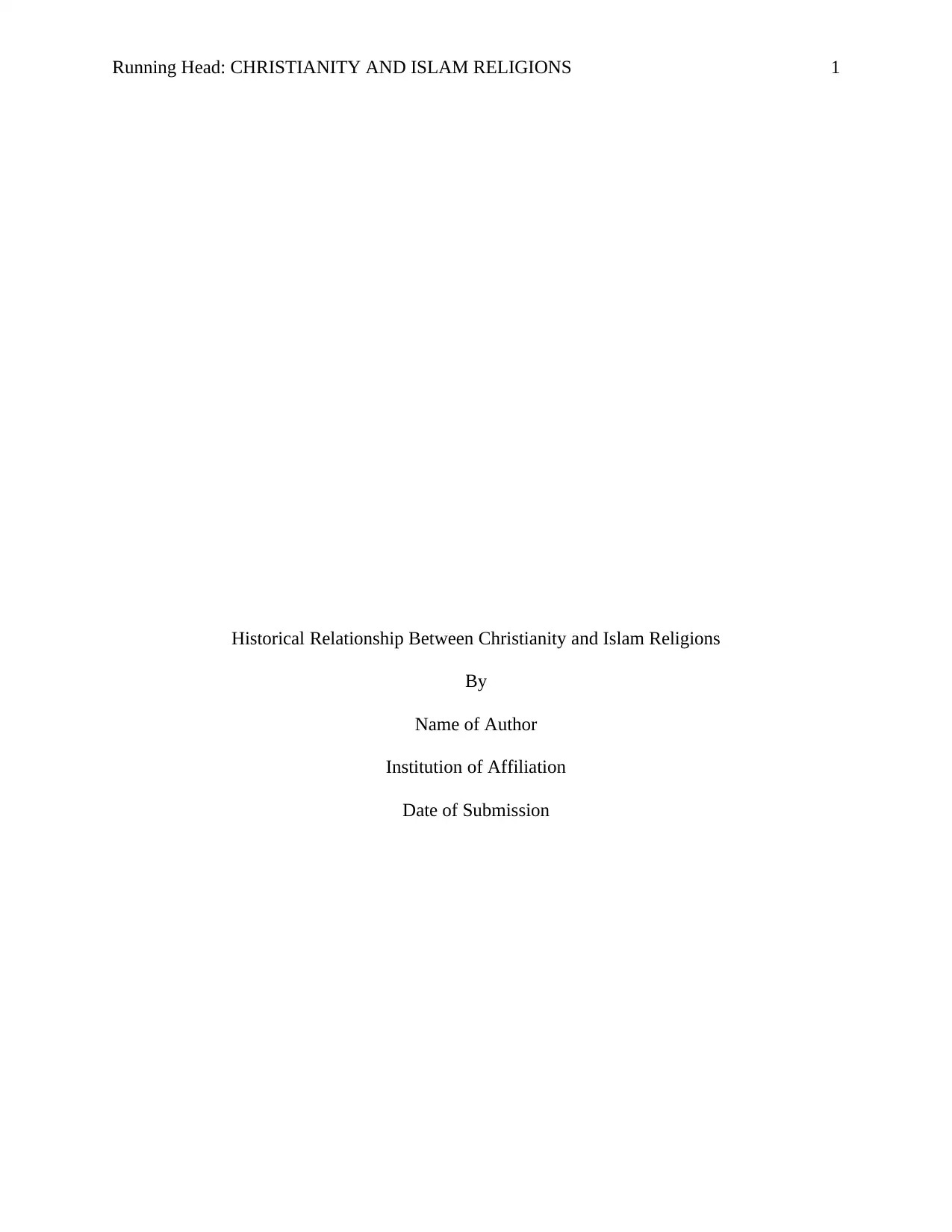
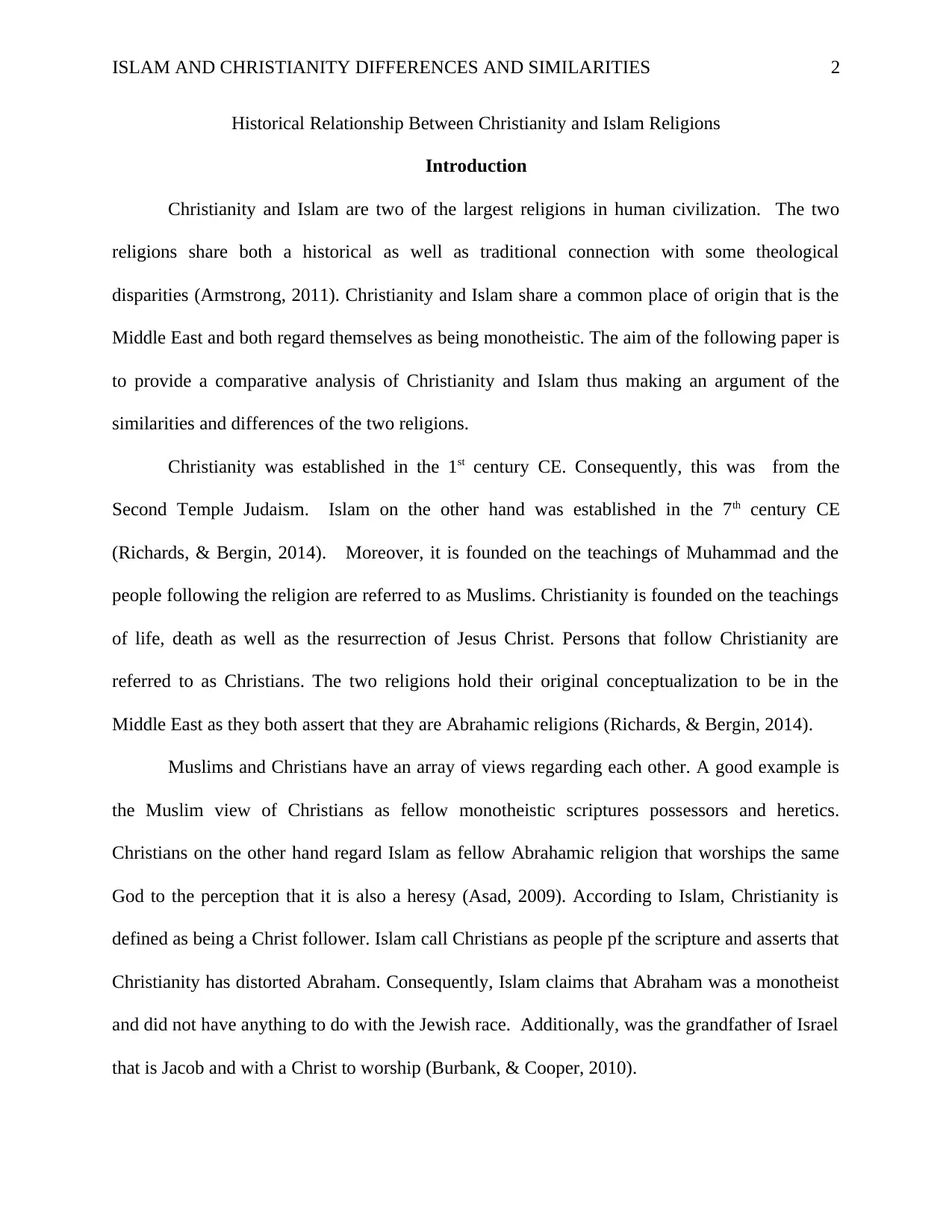
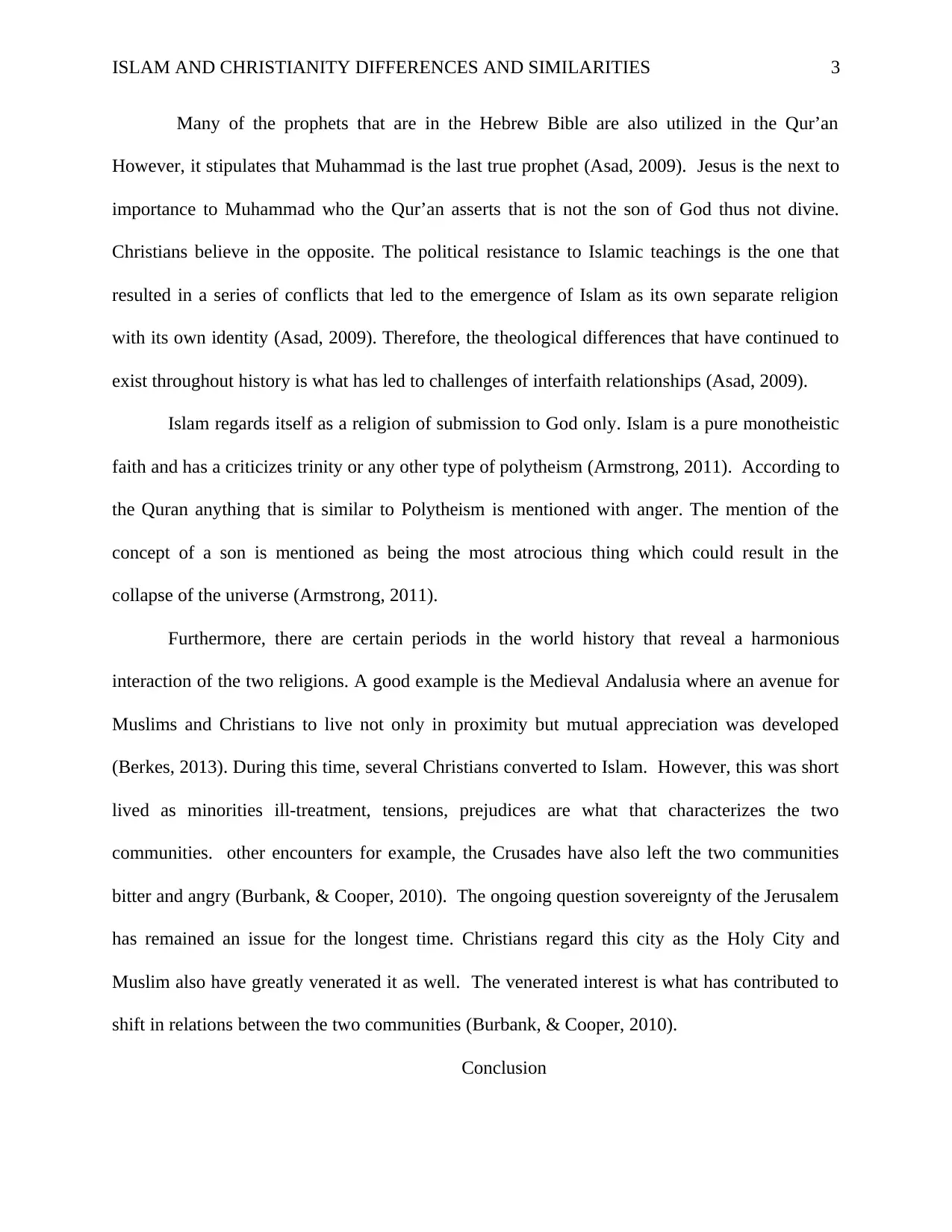

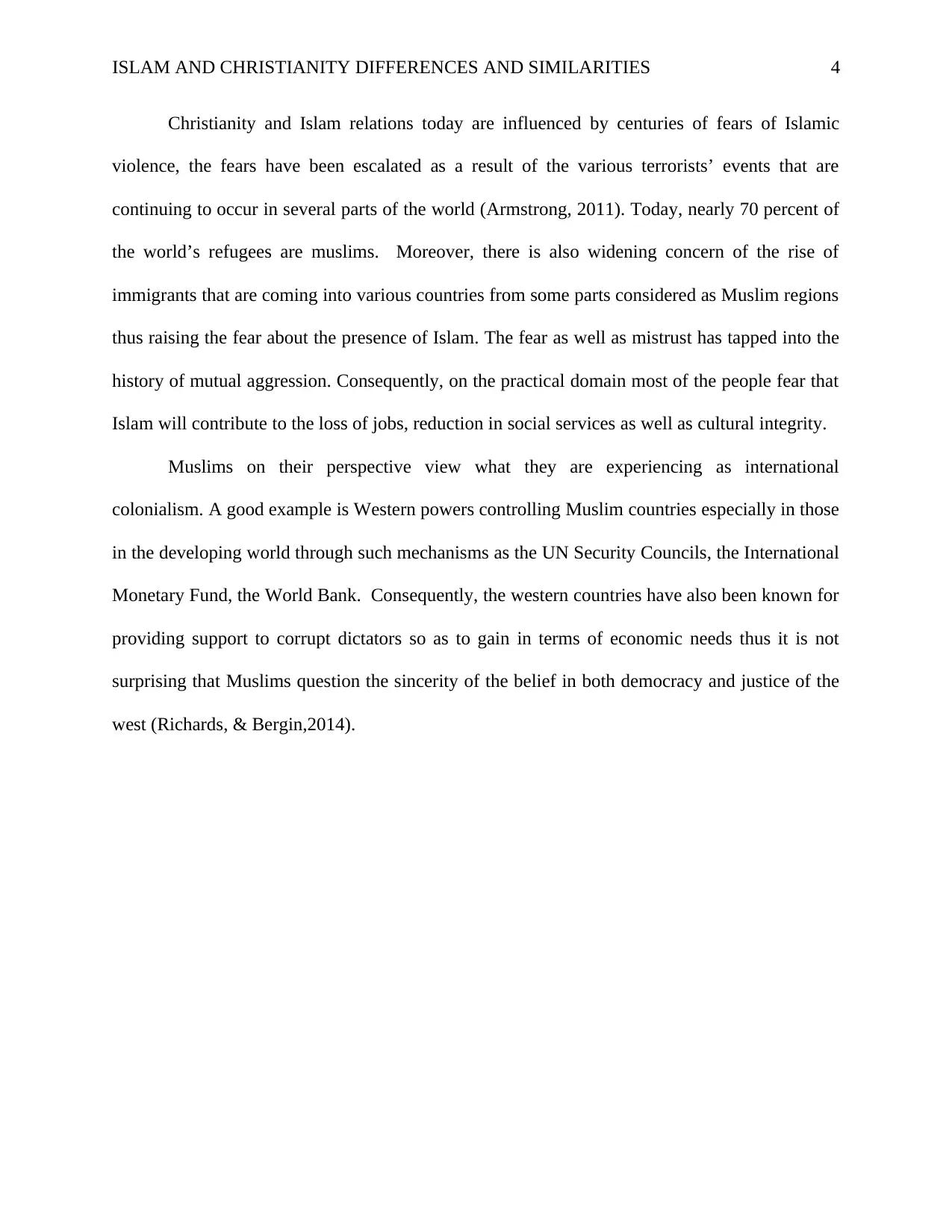
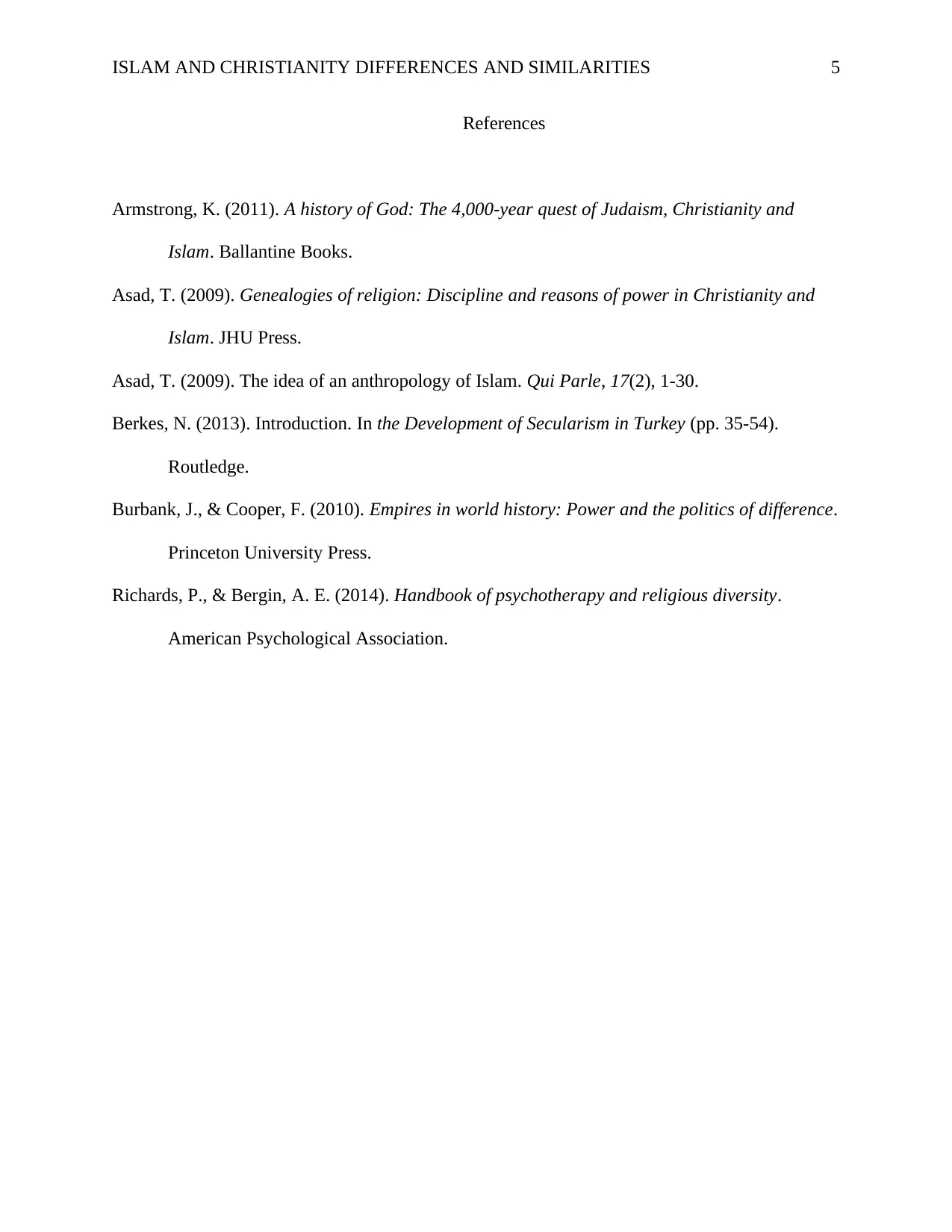




![[object Object]](/_next/static/media/star-bottom.7253800d.svg)